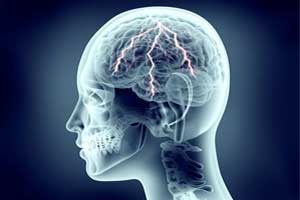- Home
- Editorial
- News
- Practice Guidelines
- Anesthesiology Guidelines
- Cancer Guidelines
- Cardiac Sciences Guidelines
- Critical Care Guidelines
- Dentistry Guidelines
- Dermatology Guidelines
- Diabetes and Endo Guidelines
- Diagnostics Guidelines
- ENT Guidelines
- Featured Practice Guidelines
- Gastroenterology Guidelines
- Geriatrics Guidelines
- Medicine Guidelines
- Nephrology Guidelines
- Neurosciences Guidelines
- Obs and Gynae Guidelines
- Ophthalmology Guidelines
- Orthopaedics Guidelines
- Paediatrics Guidelines
- Psychiatry Guidelines
- Pulmonology Guidelines
- Radiology Guidelines
- Surgery Guidelines
- Urology Guidelines
Lacosamide equally effective as fosphenytoin for nonconvulsive seizures

Lacosamide (LCM) is non-inferior to fosphenytoin (fPHT) for the treatment of nonconvulsive seizures (NCS), according to a new study published in the journal Annals of Neurology. Findings of the study further demonstrate that treatment-emergent adverse events (TEAE) associated with both the antiseizure drugs (ASD) are comparable and hence, LCM can be considered an alternative to fPHT for the treatment of NCS detected on continuous electroencephalography (cEEG).
The Treatment of Recurrent Electrographic Nonconvulsive Seizures (TRENdS) study was a non-inferiority, prospective, multicenter, randomized treatment trial of patients diagnosed with NCS by continuous electroencephalography (cEEG). Treatment was randomized to IV LCM 400 mg or IV fPHT 20 mg PE/kg. The primary endpoint was an absence of electrographic seizures for 24 hours as determined by one blinded EEG reviewer. The frequency with which NCS control was achieved in each arm was compared, and the 90% confidence interval (CI) was determined. Non-inferiority of LCM to fPHT was to be concluded if the lower bound of the CI for relative risk was above 0.8.
Read Also: FDA Approves Oral Lacosamide for Children With Epilepsy
Seventy-four subjects were enrolled (37 LCM, 37 fPHT) between August 21, 2012, and December 20, 2013, out of which 38 were women. The mean age was 63.6 years.
Key Findings:
- Seizures were controlled in 19 of 30 (63.3%) subjects in the LCM arm and 16 of 32 (50%) subjects in the fPHT arm.
- LCM was non-inferior to fPHT (p = 0.02), with a risk ratio of 1.27 (90% CI=0.88, 1.83).
- Treatment-emergent adverse events (TEAE) were similar in both arms, occurring in 9/35 (25.7%) of LCM and 9/37 (24.3%) of fPHT subjects.
"Our results show that LCM is non-inferior to fPHT in controlling NCS, and both have a comparable TEAE. LCM can be considered an alternative to fPHT in the treatment of NCS detected on cEEG," concluded the authors.
For further information log on to https://doi.org/10.1002/ana.25249

Disclaimer: This site is primarily intended for healthcare professionals. Any content/information on this website does not replace the advice of medical and/or health professionals and should not be construed as medical/diagnostic advice/endorsement or prescription. Use of this site is subject to our terms of use, privacy policy, advertisement policy. © 2020 Minerva Medical Treatment Pvt Ltd